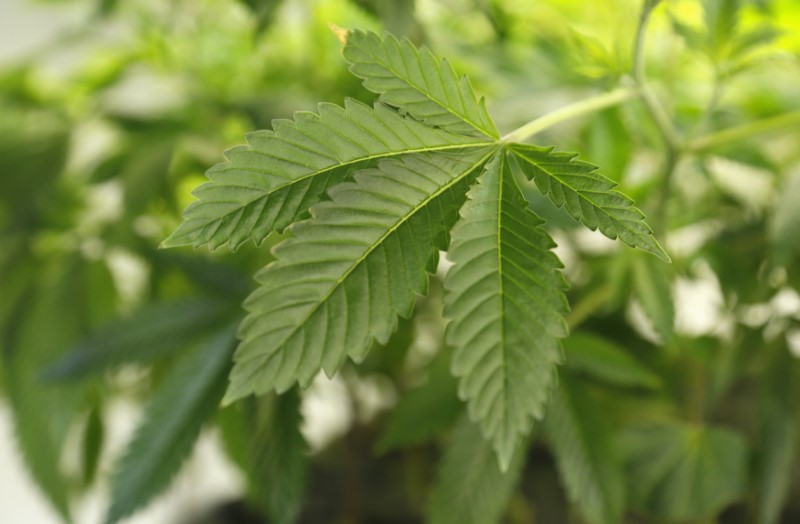 © Reuters. FILE PHOTO: File photo of a thriving marijuana plant is seen at a grow operation in Denver
© Reuters. FILE PHOTO: File photo of a thriving marijuana plant is seen at a grow operation in DenverBy Robin Respaut
SAN FRANCISCO (Reuters) – Tax revenue from recreational marijuana makes up a small percentage of annual general fund revenues in states with the most established retail markets, such as Colorado, Washington and Oregon, Moody’s Investors Service said on Tuesday.
The boost in tax revenues is marginally credit positive in states with a nascent legalized weed industry, the rating agency said, including in larger states like California.
Cities and counties are more likely to see a bigger impact from local marijuana taxes because of their relative size, Moody’s found. Some municipalities have prohibited local retail marijuana sales, in order to avoid the potential strain on law enforcement.
Twenty-nine states nationwide have legalized some form of marijuana. Nine states permit recreational use. Canada is planning to legalize weed later this year.
Colorado and Washington, two states with the most established retail weed industries, offer examples of how tax revenues can quickly ramp up in the years after legalization. Both states now anticipate collecting hundreds of millions of weed-related tax revenues annually. But ultimately that makes up 2 percent or less of the states’ total general fund revenues.
State and local governments collect sales and excise taxes, along with licensing fees. The money has paid for marijuana-related law enforcement programs, substance abuse programs, school construction, and other capital projects.
Some experts and legislators have argued that high taxes and fees on newly legal pot businesses have actually hurt their ability to generate public dollars.
In California, where a law to legalize adult-use recreational cannabis took effect this year, lawmakers have already proposed temporarily reducing state-imposed cannabis taxes to help legitimate pot workers stay competitive.
Adding to the challenges facing the industry’s growers and sellers, there is still no legal way to access banks and other financial markets. Earlier this year, the U.S. Department of Justice withdrew guidelines that limited prosecutions of marijuana sales.
Estimates for the U.S. legal weed market reach $16 billion by 2020, up from $5.4 billion in 2015, according to Euromonitor International.
Fusion Media or anyone involved with Fusion Media will not accept any liability for loss or damage as a result of reliance on the information including data, quotes, charts and buy/sell signals contained within this website. Please be fully informed regarding the risks and costs associated with trading the financial markets, it is one of the riskiest investment forms possible.
Source: Investing.com





























